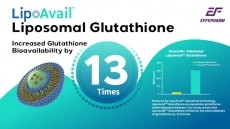Industry group urges open debate on JRC baby food report

The dietetic food industry group were responding to a recent Joint Research Centre (JRC) report on these foods that equip EU policy makers with the knowledge to develop new regulation on baby foods.
“SNE welcomes the positive step that this report represents in the context of the preparation of an up-to-date and evidence-based legislative framework,” the group stated.
“However, SNE notes that some aspects of the report could be of concern and need further consideration, in particular regarding data collection and the comparison methodology used by the JRC.
“SNE would like to ask consideration of the methodological weaknesses before drawing any conclusion for the future delegated act on baby foods.”
Report data collection and comparison
Data collection of baby foods using Mintel’s database provided a snapshot of products, introduced or relaunched in the EU market between January 2012 and March 2017.
However, according to Aurelie Perrichet, SNE’s executive director “products which were unchanged in the market since 2012 are underrepresented”.
“Mintel’s database also lists specific baby foods that comply with current EU baby food directives as well as generic foods presented for children.”
Perrichet noted several examples in the report citing the fat content of analysed products, which should not exceed the current legal maximum of 3.3 or 4.5 grams per 100 kilocalories (g/100 kcal) for baby cereals.
“It seems that products which have possibly no data listed in the Mintel database or data which are obviously wrong were included in the analysis (e.g. baby cereals with no carbohydrates).
“SNE is currently further analysing the report and could further elaborate on this in the coming weeks.”
Nutrient recommendations overview
The report provides an overview of nutrient recommendations and food-based dietary guidelines (FBDGs) developed by the European Food and Safety Authority (EFSA) and EU Member States for infant and young child feeding (from four-six months to three years old).
In addition, the survey features results developed by the JRC intended to run across EU Member States as well as a snapshot of baby food products introduced or relaunched in the EU in preparation of or after Regulation (EU) No 609/2013 came in place.
Current guideline within the EU place PCBF and baby food under the watch of Commission Directive 2006/125/ EC as food designed to satisfy infants and young children’s nutritional requirements.
This includes criteria for the product’s labelling and composition including a list of vitamins, minerals and other substances.
The directive also applies to infants (children under the age of 12 months) while they are being weaned as well as young children (between one and three years) as a supplement to their diet and/or for their progressive adaptation to ordinary food.
The current EU compositional requirements for PCBF and baby food are being updated and are subject to further notification as to when a delegated act is ready for publication.
“Although the aim of this work was not to as such recommend specific nutritional or compositional requirements for PCBF and baby food, it supports the revision of and provides the basis for setting such requirements,” the report concluded.
“SNE looks forward to participating in the discussion on the future delegated regulation on Baby foods to ensure the development of an evidence- and science-based EU legislative framework on Baby foods,” added Perrichet.
“These foods play a very specific role in the diet of infants and young children. SNE will call for the development of a future delegated act, which will guarantee a high level of consumer protection, ensure the appropriate level of information on the specificities of these foods and safeguard innovation.”















